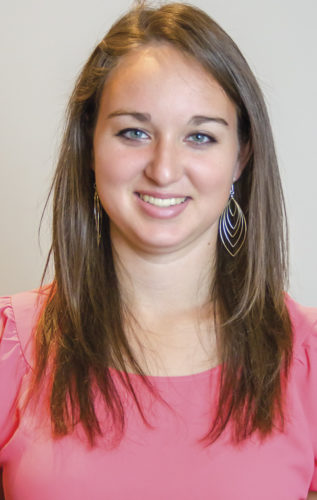I was stuck. My family was gone. I was 20 hours from home in teeny-tiny Kirksville, Missouri, and day one of college classes started the next day. It wasn’t the first time I’d been away from home, nor was it the first time I’d moved. Between summer camps and my family moving from California to Connecticut when I was 10, being away from home and moving were not foreign concepts to me.
However, this time, I didn’t know anyone. As someone who always struggled with shyness growing up, this was alarming.
Looking back now, as terrifying as that experience was, it challenged me and forced me to grow in ways I never would have if I had stayed home and attended a local college. I never would have discovered my love for cows nor production agriculture.
I never would have had the courage to move to Idaho and pursue the career I have now. I would not be the person I am today if I hadn’t faced my fears, faced the unknown, faced change.
The reality is: Change is a part of life. We cannot stop it, but we can control how we react to it. Just think of all of the changes the dairy industry has gone through in the past 50 years, or 20, or 10. Fifty years ago, my grandfather was still milking cows individually in a tiestall barn in California, and he wasn’t considered behind the times.
I still remember when my family got our first computer in the mid-’90s. Today, computers control almost everything, even on dairies. Many of you could probably even check on your herd right now from your phone. Just a few years ago, that wasn’t even possible.
My point: Change is our friend, not our enemy. It has provided producers with the means to take even better care of their cows. It has enabled the dairy industry to become more efficient, sustainable and productive than ever before.
However, change has also put animal welfare in a bigger spotlight than ever before, a fact of great concern to many in the industry.
But like I said, change is inevitable – and the best producers know that. At a conference I attended recently, we spent the first day touring three local dairies. Each of them had things they did well and some cool building or piece of technology to show off.
However, the dairy I was the most impressed with was not the one with the most automation or the newest facilities; it was the one where the producer ended the summary of his operation by asking us to critique him. He said he wanted to improve what I would call an already stellar operation.
He knew the importance of striving for perfection, never assuming you’re already there. He wanted to take advantage of having a whole bus full of people who could analyze his dairy and give him ideas on how to improve.
Like that producer, the dairy industry is doing many things right based on science and what we know of dairy production – but we’re fooling ourselves if we think we’ve reached perfection or that no one, including the public, has a right to criticize us.
The public is our bus full of people coming to our farm to help us improve. Will all of their suggestions be good ones? No. Will they give us an outside perspective and help us improve? Yes, and the more informed they are about the true dairy industry, the better their questions will be.
This does not mean jamming information down their throat and “educating” them. I doubt many of you would react well if your high school chemistry teacher walked onto your dairy and told you to sit down for the next three hours while he educated you on all of the chemistry you’ve forgotten.
Educating the public is about establishing common values and showing them that we too want our kids to drink safe, antibiotic-free milk that will help them grow healthy and strong. It’s about showing that we have nothing to hide.
If your doctor told you to come in for surgery next week but wouldn’t tell you why, would you trust him? Probably not. Sure, you may not completely understand him when he explains why because you aren’t a doctor, but having him at least attempt to help you understand makes the process more transparent.
It takes away the fear of the unknown and makes you trust him. In the next several years, we as an industry not only need to do that; we also need to be like the dairyman on the tour. We need to be open to change and accept that the way things are now may not be the best they can be. Are you ready? PD

-
Jenna Hurty
- Northwest Editor
- Progressive Dairyman
- Email Jenna Hurty




